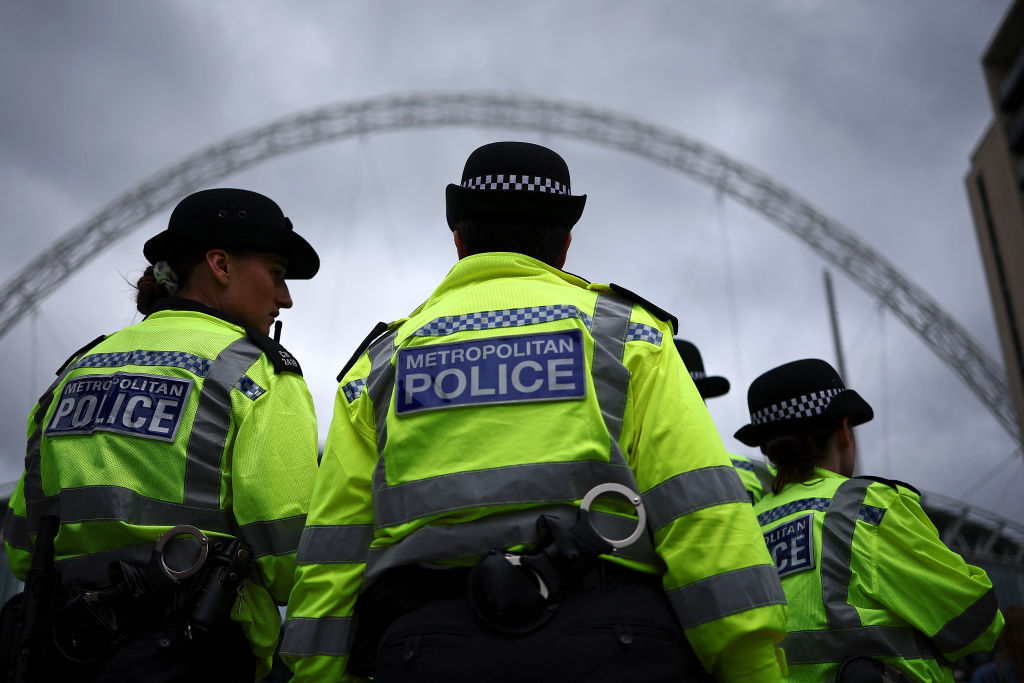Idris Elba’s new BBC documentary on knife crime aired last night, and it couldn’t have come at a more important time. Britain is reeling from an unabated wave of senseless youth violence. Just this month, a 14-year-old boy was stabbed to death on a bus in south London; a 12-year-old boy was allegedly killed by a 14-year-old in Birmingham; and a 17-year-old boy was found guilty of stabbing a 15-year-old girl to death over a teddy bear. Then there is 18-year-old Axel Rudakubana, jailed for 52 years for the horrific Southport stabbings last year. These shocking crimes hit the headlines because they plumb new depths of depravity. This is as bad as it gets, and it shows no signs of stopping soon.
Having spent nearly three decades investigating youth violence, I’ve witnessed how our inability to have honest conversations about knife crime’s demographic realities has hampered effective intervention. The statistics are clear: in urban Britain, knife crime disproportionately affects young black people, both as perpetrators and victims. Yet this fundamental truth remains largely unaddressed in public discourse.
Figures released last week show that there has been a fall in arrests in London due to a significant reduction in stop and searches. Between 2018 and 2023, arrests of under-18s for knife offences in the capital fell by 33%, while offences rose. Metropolitan Police data shows officers conducted 118,688 stop and searches in the year to January 2025, about 34,000 fewer than the previous year. A staggering 40% concerned black people, primarily aged 18-24.
When tackling knife crime, stop and search is a key police tool. Yet, it has been attacked as racist. Met Commissioner Mark Rowley recently suggested his officers have a growing reluctance to stop and search suspects because they rationalise that their careers could be “suspended for a couple of years if a complaint comes in”. Let’s be clear: by suspects we mean black suspects and by complaints we mean accusations of racism. But is stop and search racist? It is, admittedly, racial profiling — but it is not arbitrary. It is based on crime statistics, operational intelligence and demands from the silent majority of black people who’ve had enough of political correctness.
There is a complete lack of seriousness to address this epidemic of violence. The government’s latest solution — asking online knife buyers to submit ID documents and record live videos — epitomises the institutional detachment. This ignores how easily a troubled youth can access knifes from a kitchen drawer.
While the Met’s Deputy Assistant Commissioner acknowledges poorly executed stop and searches have “traumatised” communities, policing isn’t just reactive — it must be a deterrent. Ask any criminal what makes them think twice: it’s almost never sentencing, it’s usually the probability of getting caught. But if more and more police adopt a laissez-faire attitude toward combating knife crime due to squeamishness about racism, and more youths become emboldened to carry knives as a result, the outcome is obvious. And bloody.
The current crisis of extreme youth violence extends beyond policing. How are our young people nurtured, what is the state of their mental health, and are they expected to be responsible citizens? Many are too far past these considerations, though. Perpetrators display an alarming empathy deficit, unable to comprehend the consequences of their actions on victims, families, communities and themselves. This vacuum suggests deeper issues that neither poverty nor discrimination can explain. Many show signs of childhood trauma, exposure to violence, and breakdown in moral reasoning; a perfect storm when combined with social deprivation. While the Right may ponder what sort of family produces an Axel Rudakubana, the Left asks what sort of society creates such a monster.
Until we can have difficult conversations openly and honestly, while stigmatising knife crime for the sickness it is, we will get nowhere. Failing institutions, family breakdown and a ghettoised subculture that glamourises violence have conspired to create a knife crime epidemic which is spiralling out of control. Accusations of racist policing and ignoring why specific groups of young males are obsessed with extreme violence will only result in ineffective solutions. Our collective failure to address root causes with clarity and courage is serving no one. Enough is enough.











Join the discussion
Join like minded readers that support our journalism by becoming a paid subscriber
To join the discussion in the comments, become a paid subscriber.
Join like minded readers that support our journalism, read unlimited articles and enjoy other subscriber-only benefits.
Subscribe